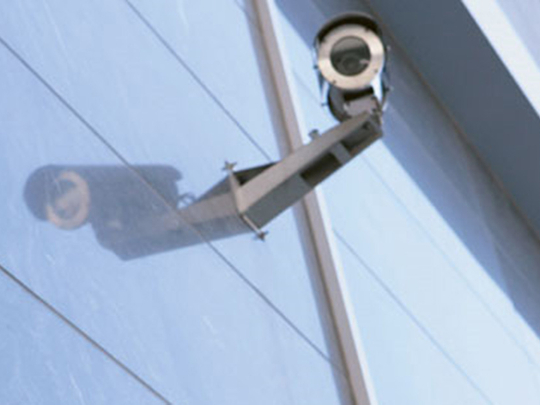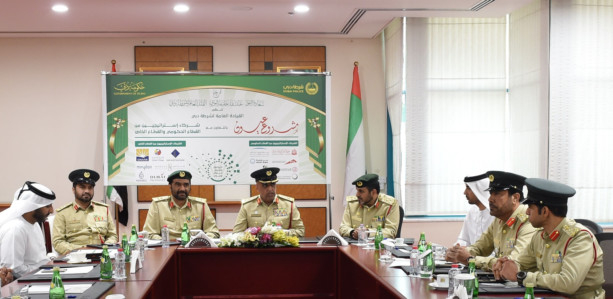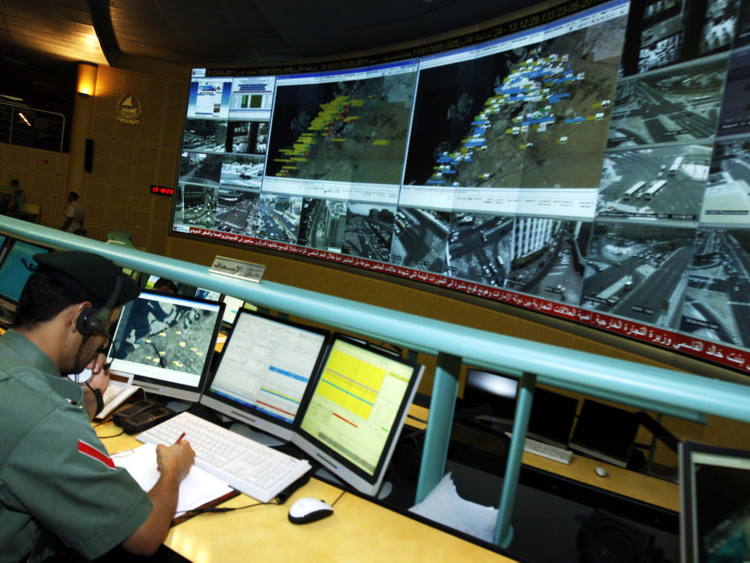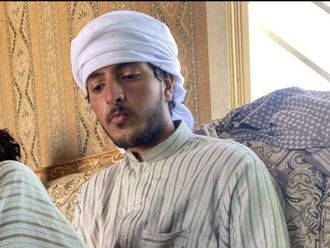
Dubai: Thousands of CCTV cameras of various Dubai government agencies will now provide live feed to a central command centre, officials said.
Under a new Artificial Intelligence (AI) network, security cameras across will relay live images of security breaches live to the central command centre, Dubai Police said. The cameras will monitor criminal behaviour in three sectors — tourism, traffic and bricks and mortar facilities.
The network, said the police, is being phased in via different stages to meet the Dubai 2021 Vision requirements of a smart city.
Announcing the programme, Major-General Khalil Ebrahim Al Mansouri, Assistant Commander-in-Chief for Criminal Investigation Affairs, said the new project called ‘Oyoon’ (eyes) will tackle crimes in the city and help reduce traffic accident deaths and congestion.
Earlier, different agencies managed their command centres to receive live feed from the CCTV cameras.
“Dubai is changing, and we must be prepared for the new changes. The project was launched by the Commander-in-Chief of Dubai Police to tackle crimes and reduce traffic accidents. Government and private sectors will participate in securing the emirate,” Major-Gen Al Mansouri said.
Artificial Intelligence will give surveillance cameras digital brains to match their eyes, letting them analyse live video with no human intervention. According to Maj-Gen Al Mansouri, this is a good news for public safety, as it will help police and first responders in spotting crimes and accidents, and it has a range of scientific and industrial applications.
“Many agencies in Dubai are operating surveillance cameras and we aim to link them all to one place for data analysis and for faster response in emergency situations. Oyoon will link all the government and private sectors surveillance cameras under one umbrella. That will end crimes in Dubai,” Maj-Gen Al Mansouri added.
Brigadier Jamal Salim Al Jallaf, deputy director of Administrative Affairs Department, said the core business of ‘Oyoon’ will be in the forensic sector, to arrest thieves and reduce serious crimes.
“We are studying the existing cameras and their types to see what we can do with them. We plan to use AI in the cameras. So we can issue traffic fine to an offender without the need to stop him,” Brigadier Al Jallaf said.
With the help of thousands of surveillance cameras in the city, using AI and face recognition technology will help police to track criminals. Police will have the ability to digitally tail criminals around the city just by uploading a mugshot into a database.
Dubai Police said they can also use the audio system in the cameras to warn thieves before they commit their crimes that they are spotted already.
“Imagine there is a burglar about to break in to a jewellery shop, we can use the audio in the system to warn him that we are watching him so he will run away.”
Meanwhile, the Oyoon committee was formed and includes strategic partners from the government sector such as the State Security Agency, Security Industry Regulatory Agency (SIRA), the Telecommunications Regulatory Authority (TRA), Dubai Municipality, Dubai Electricity and Water Authority (Dewa), Roads and Transport Authority (RTA), Mohammad Bin Rashid Space Centre (MBRSC), Dubai Smart Office, and strategic partners such as Nakheel Group, Meraas Group, Dubai Properties, Dubai World Trade Centre, Global Village and Madinat Jumeirah.
How the system will work
Artificial intelligence for video surveillance utilises computer software programmes to analyse images from the cameras to recognise humans, vehicles or objects. It converts the images or videos into data to help the decision maker or the official to respond quickly to crimes or any suspicious situation.
Source: Dubai Police














